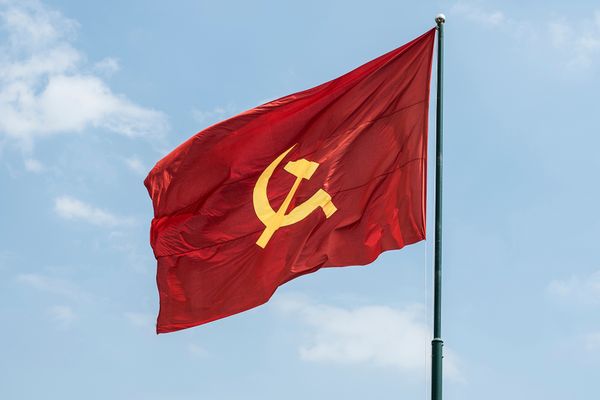4.4.3
Pan-Africanism in Nationalism
Pan-Africanism in Nationalism
Pan-Africanism in Nationalism
Pan-Africanism is a political ideology that sees the interests of all African nations as being intimately related. Pan-Africanism promotes the idea of all indigenous African groups working together to advance their cause.


The Pan-African Federation
The Pan-African Federation
- In Britain, in 1944, the Pan-African Federation was founded in Manchester. Their 1945 Congress brought together Kwame Nkrumah and Jomo Kenyatta.
- This group worked together to bring African people independence and self-determination. The group included Kwame Nkrumah (Ghana) Julius Nyerere (Tanganyika) and Jomo Kenyatta (Kenya).


Historical perspectives
Historical perspectives
- Historian T. Mkandawire (2016) argues that Nkrumah had a “quest for regional integration of the whole of the African continent."


The Organisation of African Unity
The Organisation of African Unity
- The Organisation of African Unity was established in 1963, aiming to maintain the independence and rights of African countries.
- Ironically, Nkrumah, one of the inspirations behind the movement was removed as the leader of Ghana in 1966.
1High Water Mark of the British Empire, 1857-1914
1.1Development of Imperialism, 1857-1890
1.2Imperial & Colonial Policy, 1857-1890
1.3Trade & Commerce, 1857-1890
1.4Attitudes Towards the Empire, 1857-1890
1.5Relations with Indigenous Peoples, 1857-1890
2Imperial Consolidation & Liberal Rule, 1890-1914
2.1Consolidation & Expansion in Africa, 1890-1914
2.2Imperial & Colonial Policy, 1890-1914
2.3Trade & Commerce, 1890-1914
2.4Attitudes Towards the Empire, 1890-1914
2.5Relations with Indigenous Peoples, 1890-1914
3Imperialism Challenged, 1914-1967
3.1Expansion & Contraction of Empire, 1914-1947
3.2Colonial Policy & Administration, 1914-1947
3.3Trade, Commerce & Economic Impact of War
3.4Attitudes Towards the Empire, 1890-1914
3.5Relations with Indigenous Peoples, 1914-1947
4The Wind of Change, 1947-1967
4.1Decolonisation in Africa & Asia, 1947-1967
4.2Colonial Policy & Administration, 1947-1967
4.3Trade & Commerce, 1947-1967
4.4Attitudes Towards the Empire, 1947-1967
4.5Post-Colonial Ties, 1947-1967
4.6Relations with Indigenous Peoples, 1947-1967
Jump to other topics
1High Water Mark of the British Empire, 1857-1914
1.1Development of Imperialism, 1857-1890
1.2Imperial & Colonial Policy, 1857-1890
1.3Trade & Commerce, 1857-1890
1.4Attitudes Towards the Empire, 1857-1890
1.5Relations with Indigenous Peoples, 1857-1890
2Imperial Consolidation & Liberal Rule, 1890-1914
2.1Consolidation & Expansion in Africa, 1890-1914
2.2Imperial & Colonial Policy, 1890-1914
2.3Trade & Commerce, 1890-1914
2.4Attitudes Towards the Empire, 1890-1914
2.5Relations with Indigenous Peoples, 1890-1914
3Imperialism Challenged, 1914-1967
3.1Expansion & Contraction of Empire, 1914-1947
3.2Colonial Policy & Administration, 1914-1947
3.3Trade, Commerce & Economic Impact of War
3.4Attitudes Towards the Empire, 1890-1914
3.5Relations with Indigenous Peoples, 1914-1947
4The Wind of Change, 1947-1967
4.1Decolonisation in Africa & Asia, 1947-1967
4.2Colonial Policy & Administration, 1947-1967
4.3Trade & Commerce, 1947-1967
4.4Attitudes Towards the Empire, 1947-1967
4.5Post-Colonial Ties, 1947-1967
4.6Relations with Indigenous Peoples, 1947-1967
Unlock your full potential with Seneca Premium
Unlimited access to 10,000+ open-ended exam questions
Mini-mock exams based on your study history
Unlock 800+ premium courses & e-books
